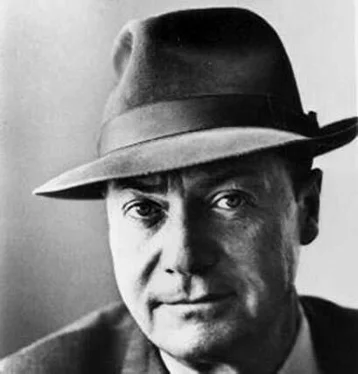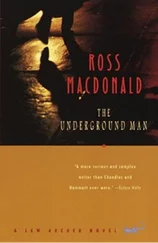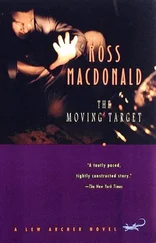“Did Horace often get picked up?”
“Not for anything bad . He used to talk to people, and get involved, like in bars. In some of his moods, nobody could look at him, he’d snap right back. Then there would be a fight, and even when he didn’t start it, it was too bad for him.”
“You mean he got beaten?”
“No. That was the trouble. He did some fighting in the Navy, and after that he had some professional fights. That was before I married him, I made him give it up. But he had no right to go picking fights with civilians. It kept him in and out of jail, and once a man starts the habit of going to jail, I–” Her voice broke, into a lower register: “I couldn’t keep him steady. He turned himself into a hater. A hater and a dreamer, with his dancing act and his crazy names. Lorenzo Granada. Big man.”
“He had an alias?”
The anger withdrew from her eyes, leaving them cautious. “Not like you think, I don’t mean that. He got this job out Ventura Boulevard at this dancing academy. Spanish type. He could pass for a Spanish type. He got this job under this Spanish name, I guess it’s Spanish. And he was ashamed to tell me about it, I guess. He knew what I thought about a man who wouldn’t stick with his own–”
“You were telling me about his job, Miss Smith.”
“Yes. He had this job, but he didn’t let on to me. He acted like he was planning to ditch me. I got scared, and jealous. He’d come home late at night with the smell of women on him. So one night I took it on myself to follow him out to the place on Ventura. He walked in bold as you please. I watched him through the window, dancing with them.”
“What did you do?”
“What could I do? Walk in and tell the people who he was, and that I was his wife? I drove on home and went to bed. When Horace got in, I told him what I thought. That he was a crazy fool crossing over, taking the risk of his life. He said that he was glad I found out. He didn’t want to hurt me, but this was it. He was starting his big new career, and I didn’t fit in with his plans. So goodbye Ruby. He packed up his suitcase, and walked out, and I never saw him again.”
“What sort of career was he planning?”
“He didn’t say, but it was easy to guess. He had this dancing-instructor job, and dancing was what was on his mind for years. He couldn’t sing, he couldn’t act, he couldn’t play an instrument. But he had to be somebody. So he was going to be a great tap dancer.” She added with a wry small smile: “He couldn’t dance, either, not by professional standards.”
“Are you sure he wasn’t planning to try something else?”
“Go back to grinding valves? He was too big to work with his hands. He wanted more than there was.”
“How far was he willing to go for it?”
“I’m not sure I understand you, Mr. Archer.”
“Don’t be offended if I spell it out. He was working under an alias. You said yourself that he was a hater and a dreamer. He’d been in and out of jail.”
“For assault. He wasn’t a criminal. I wouldn’t marry no – any criminal.”
“How long were you married to him?”
“Ten years, off and on.”
“People can change in ten years. Are you sure he wasn’t planning some criminal activity when he left you?”
“I’m sure he wasn’t.” But her eyes were guarded.
“You suggested yourself that Horace was in trouble.”
“Yes.” She nodded soberly. “I think–” She touched her mouth again, in distrust. The sound of the vacuum cleaner had stopped, and she seemed afraid to speak out into naked silence.
“You think he’s dead, Miss Smith? Your sister said something along that line.”
“Yes. I think he’s dead and buried, long ago. I’ve thought it ever since that picture came out in the newspaper.”
“A picture of Horace?”
“I’m certain it was him, yes. And it said underneath: ‘Have you seen this man?’ ”
“When did the picture come out?”
“Three years ago, almost. A few weeks after he left me. It said if anybody saw him, they should contact the police.”
“Did you?”
“No. Why should I? I didn’t see him.”
“That’s right,” her sister said from the doorway. “You didn’t see him. And you don’t know that it was Horace in the picture. It was just a picture, not a snap. You shouldn’t waste Mr. Archer’s time with it.”
“It said the man’s name was Larry Granada. That was the name Horace used.”
“It don’t prove nothing,” Mrs. Jackson said lightly. “Must be lots of Larry Granadas or whatever their name is.”
“You know it was Horace,” Ruby Smith said. “And that he’s dead and missing. You thought so at the time.”
“Maybe you thought so. I thought so. I don’t say all I know.” Mrs. Jackson’s voice went into a sibylline muttering, about the desirability of letting sleeping dogs lie.
I stood up, looking from one woman to the other. “Let them lie. It suits me.”
Mrs. Jackson looked relieved. She’d come this far, and lost her courage. But Ruby Smith shook her head determinedly, angrily. She wanted a home, and children, and a husband who was willing to give them to her.
“Don’t listen to her.”
She opened her purse. I thought she was going to press money on me, but it was a small bundle of newspaper clippings. Collecting them, I gathered this information:
Published in The Archer Files (Crippen & Landru, 2007).
The sound of breathing woke me. I opened my eyes and saw the first pale light filtering through the matchstick blinds. I closed my eyes and deliberately rolled over with my face to the wall, telling myself that it was just the sea. I’d been in the beach house for less than a week, and I wasn’t used to the constant sound of it.
But this was a different sound, quicker and somehow more urgent. Under it and behind it, I could hear the longer lapses of the surf. Somebody was breathing at me through the french door. I sat up in bed and made out his shadowy outline through the blind. His trench coat and snap-brim hat were vaguely familiar.
I got out of bed and opened the glass door:
“Colonel Ferguson?”
“I hesitated to wake you. I’ve been standing here in the corner for some time, trying to decide…” He let the sentence trail off.
“Decide to do what?”
“Ask your advice. It hardly seems fair to ask you to share my burden. But I’m very badly in need of advice from someone. I know hardly anyone in California, and you mentioned the other day that you had had some experience in crim – in these matters.”
“Criminal matters?”
His head dropped like a tired horse’s. “I’m afraid that is the case.”
I looked him over, putting together the few things I knew about him. I’d met him on the beach two days before. I think I spoke to him because he looked out of place. In fact, he looked totally lost, too civilized for the landscape and at the same time too provincial. He told me that he was a Canadian army officer visiting California for the first time, a colonel with the Canadian division of the Royal Scots Fusiliers. I asked him in for a drink, because it seemed the pukka thing to do. Over Scotch on the rocks, he became quite interesting, in a solemn way. He told a story well.
There was nothing amusing about Ferguson now. His long homely face had sunk on its bones. Under their heavy black brows, his eyes looked stunned. And he was shivering. It was a misty dawn in February, but it was hardly cold enough to make a Canadian shiver.
“Come in,” I said. “I’ll make some coffee and you can tell me about it.”
He sidled through the door, tentatively, as if he thought I might change my mind and kick him out into the cold again. For a man of his rank and background, he seemed very uncertain of himself. His feet dragged as if he’d been hamstrung.
Читать дальше












